Rome (Italy). On 3 February 2022, the 4th meeting of “Salesian Thursdays at Auxilium” was held, the initiative of the Studies Center on the FMA of the Pontifical Faculty of Educational Sciences “Auxilium” in Rome with in-depth studies of pedagogy, spirituality, and history of the Daughters of Mary Help of Christians in which Prof. Piera Ruffinatto, FMA, Principal of the PFSE “Auxilium”, explored the theme: “Citizens of the world. Ideas on the contribution of the Daughters of Mary Help of Christians to the education of young women”.
Prof. Ruffinatto introduced the topic by emphasizing how the binomial woman-education is very fruitful ground, although still to be explored and brought out in her contribution to society. Numerous studies highlight the particular qualities of women in education, suitable for a changing society. “Woman, being a mother by nature, are in fact more flexible, are able to adapt, are active and supportive, have a capital of empathy and solidarity that puts her in tune with those in need and is therefore capable of contributing to social reconstruction starting from attention to the human”, explains the Professor.
That of women remains a story yet to be discovered and known, as well as the story of the FMA Institute, which this year celebrates the 150th of Foundation. The Documents of the General Chapters, the Magisterium of the Superiors, in addition to the data relating to the works, help to grasp the significant contribution of the FMA to the education of girls, to make them “good Christians and honest citizens”. Don Bosco thought of an Institute for the education of girls, “To educate in a Christian way girls who are not wealthy or are poor and abandoned in order to introduce them to morality, science, and religion under the direction of the Sisters called the Daughters of Mary Help of Christians”. Thus in 1876, Don Bosco presented them to the Bishop of Acqui, already declining in the feminine, the aims and recipients of this educational action.
The modalities of the FMA remain those of the Preventive System, according to the specific paths of schooling, literacy, and evangelization, thus they immediately dedicate themselves to catechesis. The style, however, is typical of an original female model, characterized by intervention and participation, solidarity, creativity, resourcefulness, rooted in the territory. An unusual style for the time, “with a dialectic between proximity and universality that today we would call ‘geolocation’,” specifies Sr. Piera. From the very beginning, the cultural dimension is taken care of, so that girls can actively integrate into society.
Prof. Ruffinatto reviews the strong changes which marked Italy in the historical and social evolution of the various periods, which correspond to an expansion of the FMA Institute both in Italy and abroad, with the opening of multiple educational and promotional works. After the Second World War, they allow themselves to be provoked by the transformations and needs of society, “the Institute of the FMA, starting from the XI General Chapter, reviews its own educational work in the light of the new emerging perspectives towards women and reflects on how practically adapt it to the needs of the time”.
The Second Vatican Council, in reviewing the identity and mission of the Church from the perspective of communion, opens up new perspectives for the education of women, which the FMA welcome by placing them in dialogue with the Preventive System. The formative paths offered by the FMA to the young women are therefore more respectful of their autonomy and favor free choice in the girls oriented towards the realization of their own identity in a social perspective.
The last part of the twentieth century and the beginning of the new millennium present radical and planetary transformations, orienting towards the formation of the global citizen. “The Institute, in the chapters at the end of the millennium, renews the awareness that the educational mission is the privileged way to enter into this epochal and social transformation.” The educational paths go in the direction of formation in intercultural dialogue in the educating community and in the area, in solidarity through volunteering, in opening up to networking. The importance of women’s education for families and society emerges even more, “educating girls is the best way to transform society”.
The General Chapters and the Conferences that take place at the Auxilium deepen the redefinition of the identity of women on the basis of the categories of relationality and reciprocity. “We are aware that education to be such must promote the ability to set life on the basis of an understanding of oneself (identity) through authentic relationships with others, to lead girls to develop a self-awareness that helps to begin formation and self-formation processes that involve the whole of life”.
In conclusion, Prof. Ruffinato reflects on the contribution of the FMA “women and educators” to the formation of young women as ‘global citizens. “‘Being there’ with the gift of the charism to make our contribution to building the model of human development desired by Pope Francis. This model can be developed starting from a female formation paradigm that imbues the different contexts of life with the Culture of care. (…) The essence of care consists in ‘taking life to heart’ (Luigina Mortari ), through the care of oneself, the care of others, the care of nature, the care of the world. These are the paths of our ‘taking shape’ at the service of life”.
“Being there … with and like Mary, who foresees, prevents, and provides at Cana.” It is the choice of ‘presence’ that generates life expressed by the XXIV General Chapter.
“With her and like her, we too want to be ‘Mary of Cana’, helpers, mediators, missionaries that put us in contact with Jesus, who has filled our life with joy!” concludes Prof. Ruffinatto.


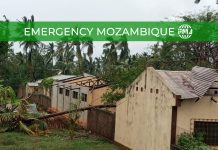
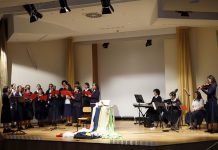
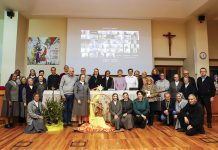

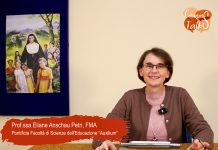


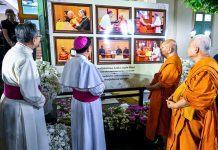
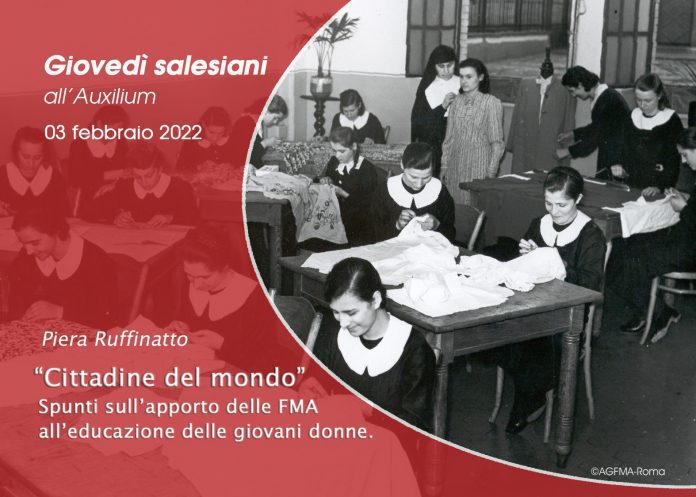










Excelente reflexión sor Piera..grazie mille